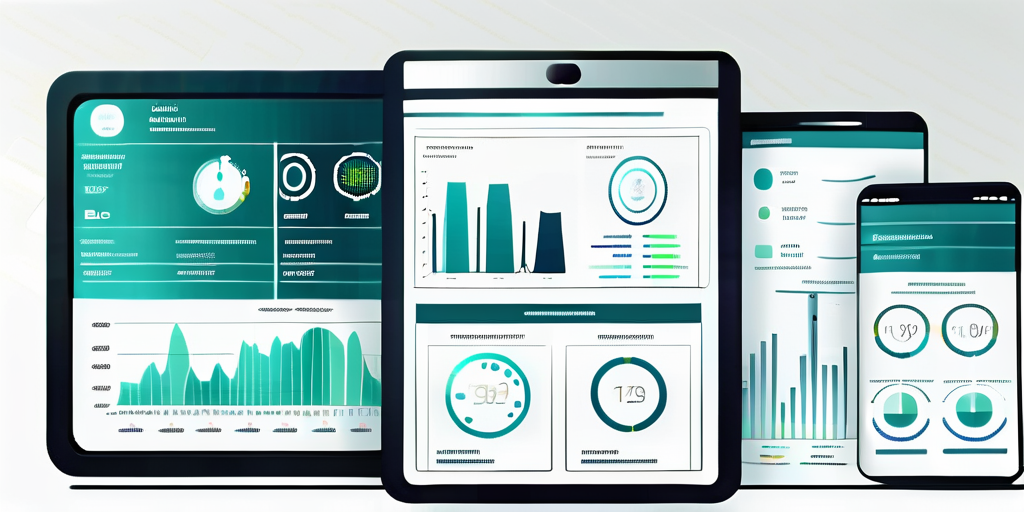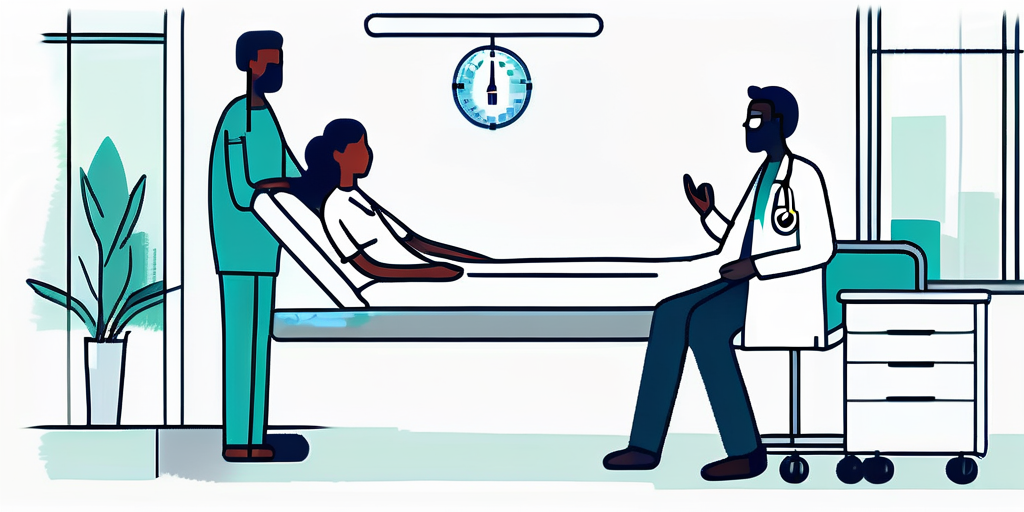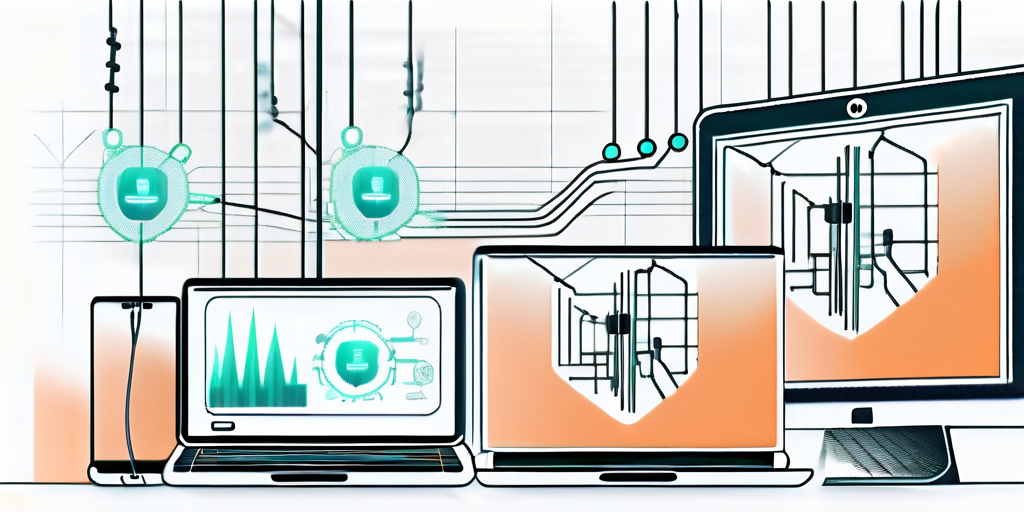In today’s digital age, healthcare organizations are increasingly recognizing the benefits of implementing an electronic health record (EHR) system. The advantages are extensive and impact various aspects of patient care, efficiency, productivity, financials, and data security. This article will explore these advantages in detail, shedding light on why EHR systems have become a necessity for modern healthcare facilities.
Understanding Electronic Health Record Systems
An electronic health record (EHR) system is a digital repository of patient information that revolutionizes the way healthcare professionals manage and access patient data. Gone are the days of flipping through stacks of paper records; EHR systems provide a streamlined and efficient approach to healthcare record-keeping.

Imagine a world where medical history, diagnoses, allergies, medications, lab results, and more are all stored in one secure and easily accessible place. That’s exactly what EHR systems offer. With just a few clicks, healthcare providers can retrieve and update patient data, ensuring that the most up-to-date information is always at their fingertips.
Definition and Key Features of EHR Systems
At its core, an EHR system is a digital repository of patient information, including medical history, diagnoses, allergies, medications, lab results, and more. These systems replace traditional paper-based records, enabling healthcare professionals to access and update patient data conveniently and securely.
But what sets EHR systems apart from their paper-based counterparts? Let’s explore some of the key features that make EHR systems a game-changer in the healthcare industry.
First and foremost, EHR systems offer robust data storage capabilities. Gone are the days of overflowing filing cabinets and lost or misplaced records. With EHR systems, patient data is stored electronically, ensuring that it is safe, secure, and easily retrievable.
Data interoperability is another critical feature of EHR systems. These systems allow for seamless sharing of patient information across different care settings. Whether a patient is visiting their primary care physician, a specialist, or a hospital, their EHR can be accessed by authorized healthcare professionals, ensuring continuity of care.
Clinical decision support tools are also integrated into EHR systems. These tools provide healthcare providers with evidence-based guidelines and recommendations, helping them make informed decisions about patient care. By leveraging the power of technology, EHR systems enhance clinical decision-making and improve patient outcomes.
E-prescribing functionalities are yet another key feature of EHR systems. With e-prescribing, healthcare providers can electronically send prescriptions to pharmacies, eliminating the need for paper prescriptions. This not only saves time but also reduces the risk of medication errors.
Lastly, EHR systems offer integrated healthcare analytics capabilities. By aggregating and analyzing patient data, these systems provide valuable insights into population health trends, disease patterns, and treatment outcomes. This information can be used to drive quality improvement initiatives and enhance healthcare delivery.
The Evolution of Health Record Systems
The adoption of EHR systems represents a significant evolution in healthcare record-keeping. Traditional paper-based records were prone to errors, difficult to share across care settings, and often inaccessible when needed the most. EHR systems address these challenges by providing a comprehensive and centralized patient record accessible by authorized healthcare professionals at any time.
But the benefits of EHR systems go beyond just digitizing patient records. These systems enable seamless collaboration among care teams, facilitating information exchange and improving communication. With EHR systems, healthcare providers can easily share patient data, consult with colleagues, and work together to provide the best possible care.
Furthermore, EHR systems support population health management through data aggregation and analysis. By collecting and analyzing data from a large patient population, healthcare organizations can identify trends, patterns, and risk factors. This information can then be used to develop targeted interventions and preventive strategies, ultimately improving the health of communities.
In conclusion, EHR systems have revolutionized healthcare record-keeping. With their robust data storage capabilities, data interoperability, clinical decision support tools, e-prescribing functionalities, and integrated healthcare analytics, these systems empower healthcare providers to deliver efficient and effective care. By embracing EHR systems, the healthcare industry is moving towards a future where patient data is easily accessible, care is coordinated, and patient outcomes are improved.
The Impact on Patient Care
Electronic Health Record (EHR) systems have revolutionized the healthcare industry by improving the accuracy and accessibility of patient information. Gone are the days of illegible or misinterpreted handwritten notes, as EHR systems ensure accurate and readable documentation. This not only saves time for healthcare professionals but also eliminates the risk of critical information being overlooked.

With all patient information stored digitally, healthcare professionals can quickly access comprehensive records, including medical histories, diagnosis details, and treatment plans. This enhanced accessibility enables informed decision-making, as healthcare providers have a holistic view of the patient’s health. By having access to a patient’s complete medical history, doctors can make more accurate diagnoses and develop personalized treatment plans.
Moreover, EHR systems go beyond just improving accessibility. They also play a crucial role in preventing medication errors. Real-time alerts and reminders within EHR systems ensure that healthcare providers are aware of potential drug interactions, allergies, and dosage guidelines. This proactive approach significantly reduces the chances of medication errors, ultimately enhancing patient safety.
Furthermore, EHR systems contribute to enhancing patient safety and care quality through features such as computerized physician order entry (CPOE) and clinical decision support systems (CDSS). These features provide evidence-based recommendations and alerts to healthcare providers, helping them make well-informed decisions. By flagging potentially harmful drug interactions and providing best practice guidelines, EHR systems promote standardized care practices and reduce the risk of adverse events.
In emergency situations, EHR systems prove to be invaluable. Real-time access to critical information during emergencies improves response time and enables more accurate diagnoses and treatment. With EHR systems, healthcare professionals can quickly retrieve vital information, such as allergies or pre-existing conditions, allowing them to provide timely and appropriate care. This immediate access to patient information can be life-saving in critical situations.
In conclusion, EHR systems have a profound impact on patient care. By improving the accuracy and accessibility of patient information, EHR systems elevate the quality of care while minimizing errors and adverse events. With features like real-time alerts, evidence-based recommendations, and immediate access to critical information, EHR systems contribute to enhancing patient safety, care quality, and overall outcomes.
Efficiency and Productivity Gains
Streamlining Administrative Tasks
One of the significant advantages of EHR systems is their ability to streamline administrative tasks, freeing up healthcare professionals’ time to focus on patient care. With automated scheduling, billing, and coding functionalities, EHR systems reduce manual paperwork, minimize errors, and ensure seamless workflows.
Moreover, EHR systems facilitate efficient communication and coordination among care team members, eliminating the need for time-consuming phone calls and physical document transfers. This improved collaboration expedites decision-making and care delivery, resulting in enhanced productivity and patient satisfaction.
Facilitating Communication and Collaboration
EHR systems bridge communication gaps between different healthcare providers and care settings. Through secure messaging platforms, healthcare professionals can easily communicate and share patient information, including test results, imaging reports, and referrals. This efficient data exchange ensures timely decision-making, reduces duplication of tests, and improves care coordination.
Furthermore, EHR systems support telehealth initiatives by enabling remote access to patient records, facilitating virtual consultations, and promoting continuity of care. Such telemedicine capabilities have become particularly valuable during the COVID-19 pandemic, allowing healthcare professionals to provide safe and uninterrupted services to patients.
Financial Benefits of EHR Systems
Cost Savings and Revenue Enhancement
While the initial investment in implementing an EHR system may seem substantial, the long-term financial benefits outweigh the costs. EHR systems reduce expenses associated with paper supplies, storage, record retrieval, and transcription services. Additionally, streamlined workflows and automation result in increased efficiency, reducing administrative overhead costs.
Moreover, EHR systems support accurate and timely billing and coding practices, minimizing claim denials and ensuring optimal reimbursement. Real-time access to comprehensive patient information also helps identify opportunities for preventive care, reducing the likelihood of costly hospitalizations or emergency visits. These financial gains contribute to the overall sustainability of healthcare organizations.
Impact on Billing and Coding
EHR systems simplify the billing and coding process by automating documentation and incorporating coding standards and guidelines. Through integration with coding software, EHR systems facilitate accurate code assignment, minimizing the risk of errors and inappropriate billing.
Furthermore, EHR systems generate comprehensive reports on clinical procedures and interventions, enabling efficient utilization management and auditing. These reports assist in identifying trends, monitoring outcomes, and ensuring compliance with regulatory requirements.
Data Security and Compliance
Ensuring Patient Privacy and Confidentiality
As healthcare facilities transition to digital records, data security and patient privacy are of utmost importance. EHR systems employ rigorous security measures, including user authentication, encryption, and audit logs, to protect sensitive patient information from unauthorized access or breaches.

By centralizing and securing patient data, EHR systems reduce the risk of lost or stolen records. Access controls and data segregation mechanisms ensure that only authorized healthcare professionals can view or edit patient information, maintaining confidentiality and compliance with privacy regulations.
Compliance with Health Information Regulations
EHR systems assist healthcare organizations in complying with health information regulations, such as the Health Insurance Portability and Accountability Act (HIPAA). These systems enforce data integrity and facilitate secure transmission of patient information across different care settings.
Furthermore, EHR systems support workflows that streamline regulatory reporting, ensuring timely submission of necessary data to government bodies and agencies. Compliance with health information regulations instills trust in patients, strengthens data governance, and protects healthcare organizations from legal and financial repercussions.
In conclusion, the advantages of implementing an electronic health record system are clear and far-reaching. From improving accuracy and accessibility of patient information to enhancing patient safety and care quality, EHR systems have revolutionized healthcare delivery. These systems also bring about efficiency and productivity gains, financial benefits, and robust data security. As healthcare organizations strive to provide the highest standards of care and navigate an increasingly digital landscape, the adoption of EHR systems has become indispensable.




